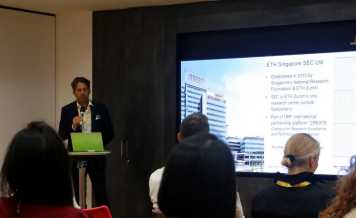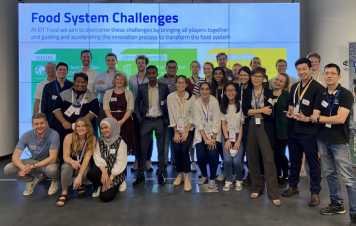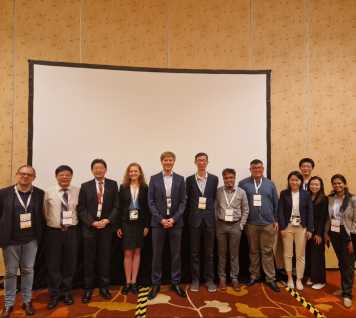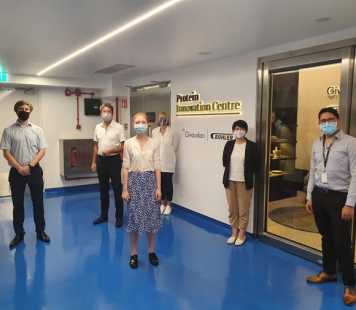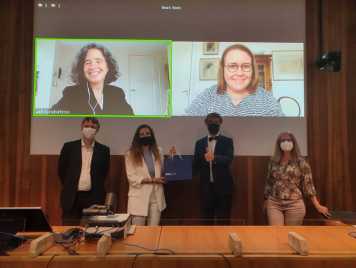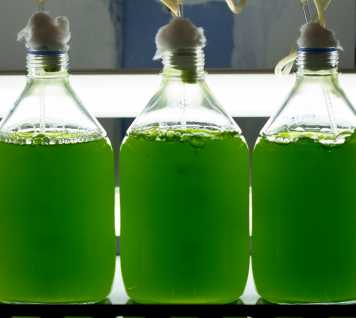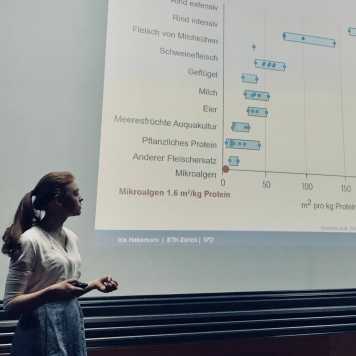Efficient production of microalgae
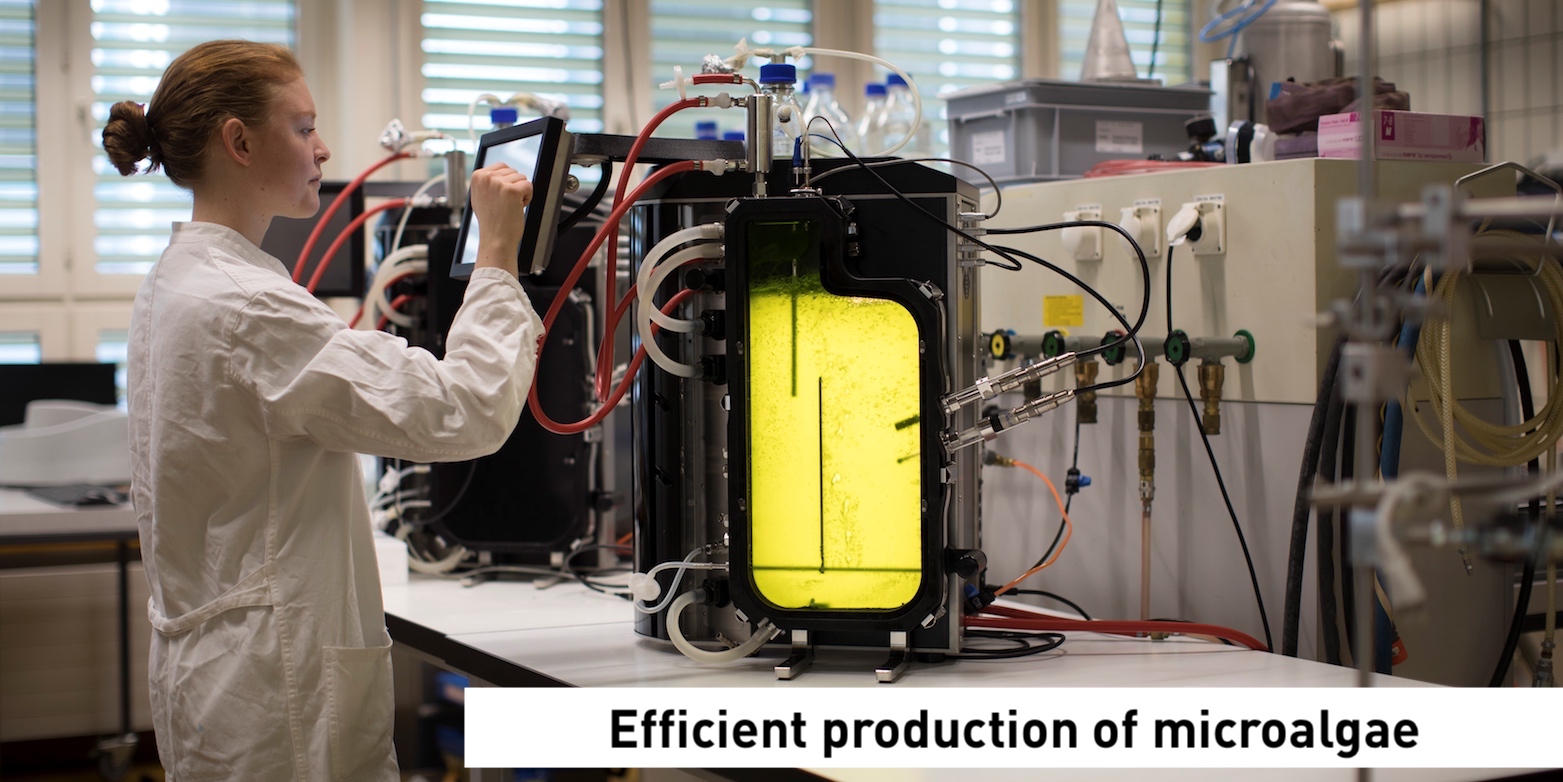
Besides proteins, microalgae are sources of carbohydrates, polyunsaturated fatty acids, essential minerals and vitamins. Incorporation of microalgae into food products can therefore increase their nutritional value. However, due to limitations in technology readiness level and scale, innovation is needed to make microalgae production and processing sustainable for food applications.
Innovation goal
To identify, design and validate processes to enable microalgae-derived proteins for food applications.
Research highlights
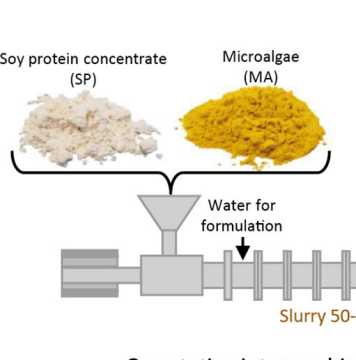
Recent study on first extruded meat analogues based on yellow, heterotrophically cultivated microalgae. The incorporation of microalgae into soy alternative meat products successfully achieves enhanced nutrition, tenderness and light color. Auxenochlorella protothecoides algae integration improved the extrudate's nutritional profile by incorporating vitamins B and E, where over 95% was retained in the final product.
external pageExtruded meat analogues based on yellow, heterotrophically cultivated Auxenochlorella protothecoides microalgaecall_made by Caporgno, M.P. et al. (2020)
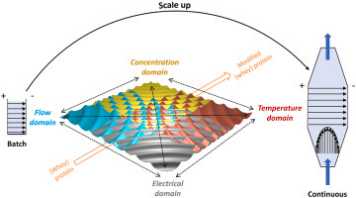
Novel pulsed electric field (PEF) applications to modify the techno-functionality of biomacromolecules have recently emerged. As insights into the involved interplay of factor domains with respect to the treatment chamber locations, and into the scalability are lacking, setups were built and stimulated in this study to investigate the domains and resulting gradient interactions using liquid whey protein solutions.
external pageExperimental and simulation-based investigation of the interplay between factor gradients following pulsed electric field treatments triggering whey protein aggregationcall_made by Axelrod R. D. et al. (2023)
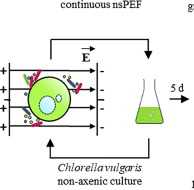
Nanosecond pulsed electric field treatment (nsPEF) is a technology-driven, resource-efficient approach fostering microalgae biorefineries for transforming them into economically viable scenarios. The study fosters the upsurge of industrial-scale nsPEF realization and the economic viability of microalgae biorefineries through improved process understanding and thus control. It perpetuates nsPEF applicability for microalgae feedstock production and several other applications within single-cell biorefineries in the bio-based domain.
external pageNanosecond pulsed electric field processing of microalgae based biorefineries governs growth promotion or selective inactivation based on underlying microbial ecosystemscall_made by Haberkorn I. et al. (2021)
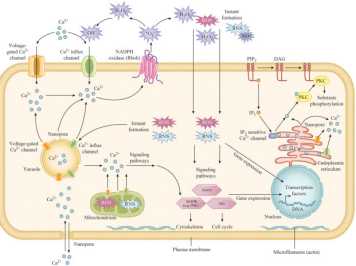
Nanosecond pulsed electric field (nsPEF) processing is gaining momentum as a physical means for single-cell bioconversion efficiency enhancement. As the exact working mechanisms underlying nsPEF-based enhancement of bioconversion efficiency are still elusive, and a better understanding would be pivotal for leveraging process control to broaden the application of nsPEF and scale-up industrial implementation, this study aids in fostering the upsurge of nsPEF applications in the bio-based domain by providing a basis to gain a better understanding of cellular mechanisms underlying an nsPEF-based enhancement of cellular bioconversion efficiency and suggests best practice guidelines for nsPEF documentation for improved knowledge transfer.
external pageEnhancing single-cell bioconversion efficiency by harnessing nanosecond pulsed electric field processingcall_made by Haberkorn I. et al. (2021)
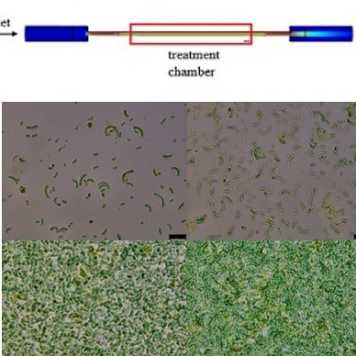
Continuous extraction from Chlorella vulgaris cultures via pulsed electric field (PEF) processing resulted in a free protein extraction up to 29% without impeding cell growth. Within the scope of this work, a protocol for continuous protein extraction during microalgae cultivation by PEF processing was developed.
external pagePulsed electric field based cyclic protein extraction of microalgae towards closed-loop biorefinery conceptscall_made by Buchmann, L. et al. (2019)
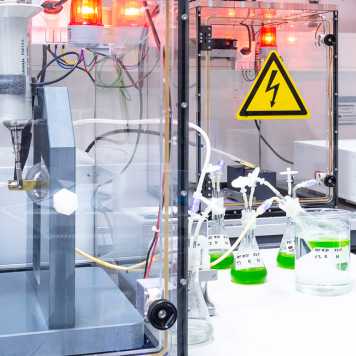
Pulsed electric field (PEF) processing is a promising technological solution for food applications such as non-thermal pasteurization, enhanced drying rates, and increased extraction yields. This perspective on PEF treatments in the bio-based industry summarizes basic principles and promising applications across different sectors.
external pagePerspective on pulsed electric field treatment in the bio-based industrycall_made by Buchmann, L. and Mathys, A. (2019)
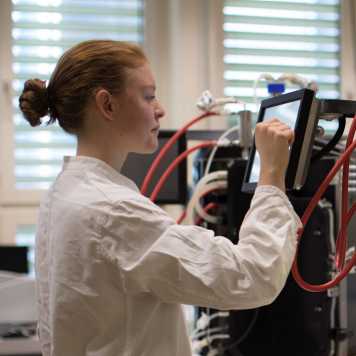
Nanosecond pulsed electric field treatment (nsPEF) is an innovative, technology-driven, and resource-efficient approach to transform microalgae into more economic raw materials for the bio-based industry. This study found nsPEF increased Chlorella vulgaris algae biomass yield by up to 17.5 ± 10.5%.
external pageContinuous nanosecond pulsed electric field treatments foster the upstream performance of Chlorella vulgaris-based biorefinery conceptscall_made by Haberkorn, I. et al. (2019)
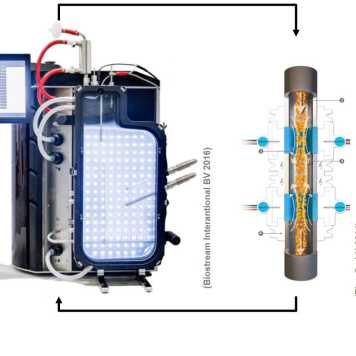
Abiotic sub-lethal stress induction via nanosecond pulsed electric field (nsPEF) treatment might be a viable process to increase the efficiency of photoautotrophic microalgae cultivation. A protocol for increased cell proliferation with a possible mechanism was derived, which improves competitiveness of photoautotrophic microalgae biorefineries in the future.
external pageEffect of nanosecond pulsed electric field treatment on cell proliferation of microalgaecall_made by Buchmann, L. et al. (2019)
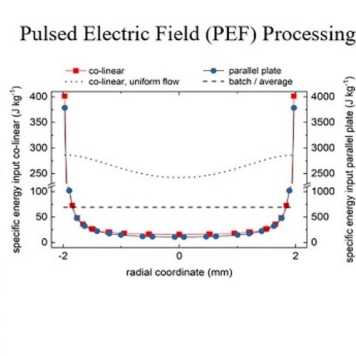
Pulsed electric field (PEF) is an emerging nonthermal technique with promising applications in microalgae biorefinery concepts. A comprehensive system characterization was achieved that will facilitate research in the field of PEF processing.
external pageComprehensive pulsed electric field (PEF) system analysis for microalgae processingcall_made by Buchmann, L. et al. (2018)
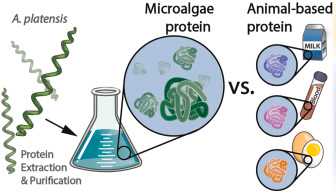
To establish microalgae proteins as viable alternative, it is critical to understand the effect of physicochemical conditions on their adsorption behavior and interfacial network formation. In this study, a protein isolate from the cyanobacterium Arthrospira platensis was extracted and its interfacial performance in a broad range of concentration, pH, ionic strength, and at oils with altering polarity was investigated.
external pageArthrospira platensis protein isolate for stabilization of fluid interfaces: Effect of physicochemical conditions and comparison to animal-based proteinscall_made by Bertsch P. et al. (2023)
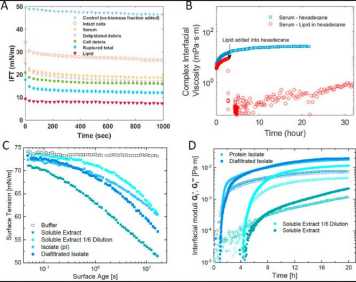
Microalgae and cyanobacteria are expected to play a key role as sustainable protein source in future food production systems. Besides nutritional aspects, microalgae proteins are increasingly screened for their technofunctional potential, including the stabilization of emulsions and foams. This study assessed the potential of microalgae proteins as green alternative to stabilize fluid interfaces. To do so, the use of microalgae proteins is reviewed from fundamental adsorption kinetics and interfacial elasticity to the formation and stability of emulsions and foams. Furthermore, the microalgae proteins are critically compared to currently employed proteins with respect to interfacial performance, economic, and environmental aspects.
external pageProteins from microalgae for the stabilization of fluid interfaces, emulsions, and foamscall_made by Bertsch P. et al. (2021)
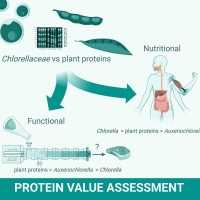
As microalgae are gaining more interests as food ingredients, assessments of functional and nutritional properties are necessary. That's why this study aimed to determine and compare protein content and composition of eight commercially available microalgae biomasses to conventional food proteins. Thereby, a novel procedure for the determination of the true protein content was proposed which works with the multiplication of proteinic nitrogen with a sample-specific nitrogen-to-protein conversion factor kA. The proteinic nitrogen was derived from the difference of total nitrogen minus non-protein nitrogen. The study finds an average kA for microalgae of 5.3 and considerable variation between different microalgae biomasses were detected.
external pageA novel approach for the protein determination in food-relevant microalgaecall_made by Sägesser, C. et al. (2023)
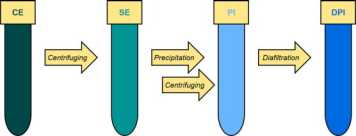
In light of environmental concerns and changing consumer demands, efforts are increasing to replace frequently used animal-based emulsifiers. In this study the interfacial network formation and emulsifying potential of Arthrospira platensis protein extracts was demonstrated and a mechanistic change upon progressing purification was hypothesized.
external pageEffect of Arthrospira platensis microalgae protein purification on emulsification mechanism and efficiencycall_made by Böcker L. et al. (2021)
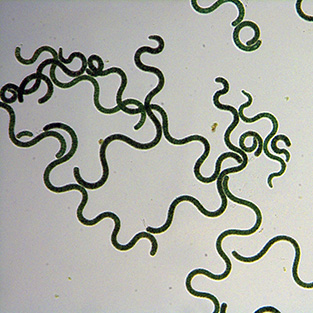
Algae extracts from Spirulina is rich in phycocyanin, a protein-pigment complex that is the only natural blue colorant. New study provides a functionality assessment of purified phycocyanin. The findings help optimize the efficiency of raw material usage by defining a processing window, thus enabling targeted process control resulting in desired product properties.
external pageTime-temperature-resolved functional and structural changes of phycocyanin extracted from Arthrospira platensis/Spirulinacall_made by Böcker, L. et al. (2020)
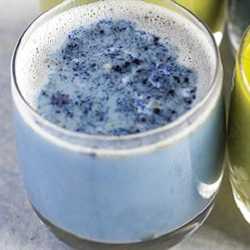
Central to this study is the color stability of phycocyanin, which is a high value component, derived from the emerging food source microalgae. This data will directly support food research and development activities to optimize and minimize blue color losses within multiple product categories.
external pageBiphasic short time heat degradation of the blue microalgae protein phycocyanin from Arthrospira platensiscall_made by Böcker et al. (2019)
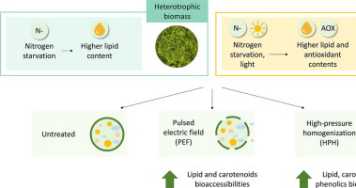
Microalgae are a promising source of polyunsaturated fatty acids as well as bioactive antioxidant compounds. However, the accumulation of these biomolecules is often promoted by conflicting growth conditions. In this study, a phased bioprocessing strategy was developed to simultaneously enhance the lipid and antioxidant amounts by tailoring nitrogen content in the cultivation medium and applying light stress.
external pageA novel strategy to simultaneously enhance bioaccessible lipids and antioxidants in hetero/mixotrophic Chlorella vulgaris as functional ingredientcall_made by Canelli G. et al. (2022)
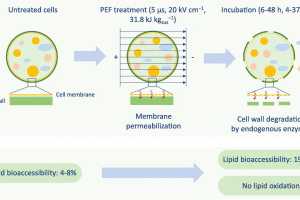
There is growing demand for gentle technologies to improve the lipid bioaccessibility (BA) of Chlorella vulgaris biomass while preserving cell integrity and therefore oxidative stability. The aim of this study was to define an interval of pulsed electric field (PEF) parameters (electric field strength and pulse width) targeting an enhancement of the lipid extractability of C. vulgaris. Additionally, it was examined whether PEF treatment could improve the lipid bioaccessibility of C. vulgaris, with a close understanding of the effect of the incubation time and temperature after PEF.
external pagePulsed electric field treatment enhances lipid bioaccessibility while preserving oxidative stability in Chlorella vulgariscall_made by Canelli G. et al. (2022)
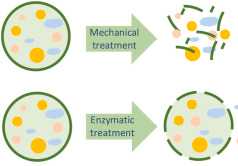
The green microalgae Chlorella vulgaris is a source of valuable nutrients, whose bioaccessibility is limited by the structurally complex cell wall. This work aimes to define an optimal combination of enzymes to increase the lipid and protein bioaccessibilities of C. vulgaris cells while preserving oxidative stability.
external pageTailored enzymatic treatment of Chlorella vulgaris cell wall leads to effective disruption while preserving oxidative stabilitycall_made by Canelli G. et al. (2021)
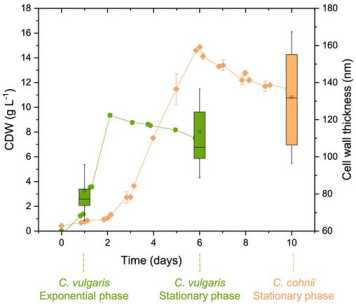
Microalgae are attractive for the food and cosmetic industries because of their nutrient composition. However, the bioaccessibility and extractability of nutrients in microalgae are limited by the rigid and indigestible cell wall. The goal of this study is to explore the cell wall polysaccharides (CWPSs) composition and morphology in heterotrophic Crypthecodinium cohnii and Chlorella vulgaris biomasses during growth.
external pageBiochemical and Morphological Characterization of Heterotrophic Crypthecodinium cohnii and Chlorella vulgaris Cell Wallscall_made by Canelli G. et al. (2021)
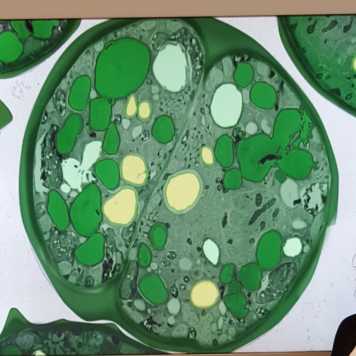
New study investigated Chlorella vulgaris algae cultivated in bioreactor and found that C. vulgaris biomass can be considered as a stable and nutritious source of essential fatty acids.
external pageChlorella vulgaris in a heterotrophic bioprocess: Study of the lipid bioaccessibility and oxidative stabilitycall_made by Canelli, G. et al. (2020)
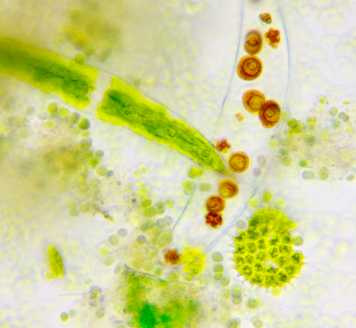
Microalgae are a source of potentially healthy and sustainable nutrients. However, the bioaccessibility of these nutrients remains uncertain. In this study, we analyzed the biomass composition of five commercial Chlorella and Auxenochlorella strains, and Chlorella vulgaris heterotrophically cultivated in our laboratory.
external pageBiochemical and Nutritional Evaluation of Chlorella and Auxenochlorella Biomasses Relevant for Food Applicationcall_made by Canelli G. et al. (2020)
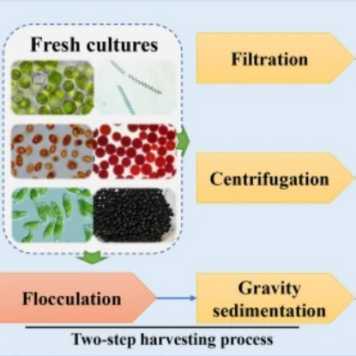
The main objectives of this study were to systematically examine the global development of microalgal biotechnology for biomass production, with a focus on cultivation, harvesting, drying, and control of biological contaminants. Moreover, the review summarized the current status of biomass production of some biotechnologically important species, and noted the importance of improving microalgae-related standards for their commercial applications as well as research and development in creating low-cost, standardized, industrial-scale production equipment, optimizing production processes, and increasing understanding of biological contaminants and microalgal active ingredients.
external pageBiotechnologies for bulk production of microalgal biomass: from mass cultivation to dried biomass acquisitioncall_made by Qin, S. et al. (2023)
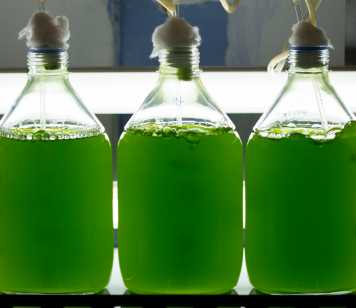
Microalgae are emerging as a next-generation biotechnological production system in the pharmaceutical, biofuel, and food domain. The economization of microalgal biorefineries remains a main target and the automated online flow cytometry (FCM) is gaining momentum as bioprocess optimization tool, as it allows for spatial and temporal landscaping, real-time investigations of rapid microbial processes, and the assessment of intrinsic cell features. Automated online FCM has not been applied to microalgal ecosystems so far and this study lays the foundations for an application of automated online FCM implying far-reaching applications to impel and facilitate the implementation of innovations targeting at microalgal bioprocesses optimization.
external pageAutomated Online Flow Cytometry Advances Microalgal Ecosystem Management as in situ, High-Temporal Resolution Monitoring Toolcall_made by Haberkorn I. et al. (2021)
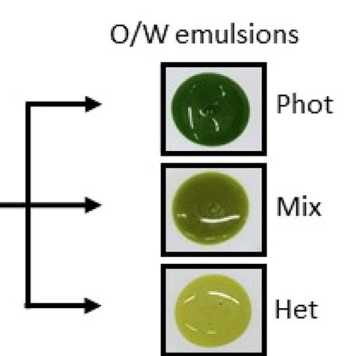
Microalgae can be incorporated in different bio-based products; however, the green colour is a barrier for a successful integration. Mixotrophic cultivation of Chlorella protothecoides algae resulted in reduced greenish colouration and stable emulsions containing 50% oil could be produced.
external pageCultivation of Chlorella protothecoides under different growth modes and its utilisation in oil/water emulsionscall_made by Caporgno, M. et al. (2019)
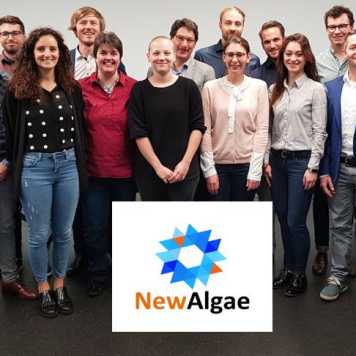
The project "New sustainable food formulations based on algae proteins" (NewAlgae) facilitated process innovation in the food industry focused on algae protein at ETH Zurich and partner institutions.
Project page DownloadProject Fact sheet (PDF, 138 KB)vertical_align_bottom
Outreach & media highlights
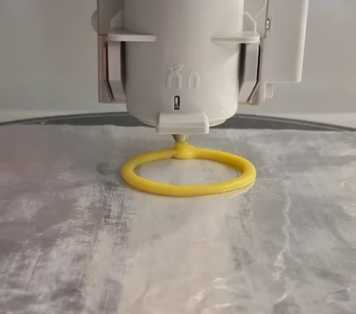
August 2023
Print to plate: Developing 3D printed seafood. See news article and external pagevideocall_made here.
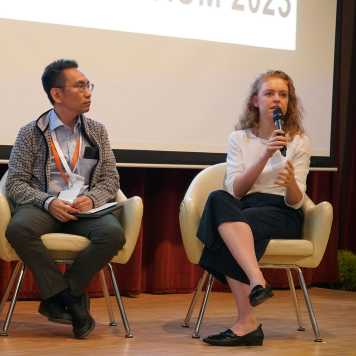
July 2023
SEC presented its best digital health, urban sustainability and resilience research at the CREATE Symposium 2023. Read ETH article and external pageThe Straits Times articlecall_made here.
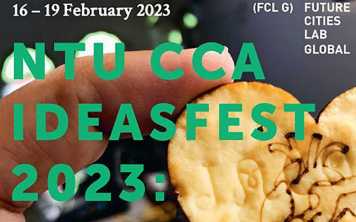
February 2023
The NTU CCA IdeasFest was co-organized by SEC's FCL Global. The Microalgae and BSFL team contributed with an Exhibition, Talks and Panel discussion. More information.
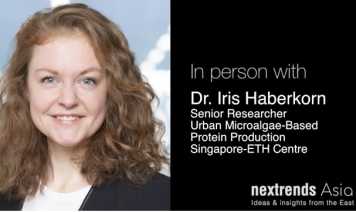
November 2022
Dr. Iris Haberkorn was guest at external pagenextrends Asiacall_made and had a conversation about an alternate approach to the Future Food System with Joël Henri Brunner, Science Counselor, Embassy of Switzerland in Singapore.
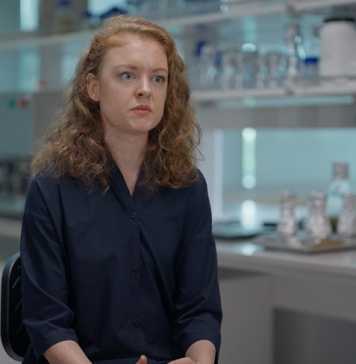
October 2022
external pageDocumentary at Channel News Asiacall_made highlighted the work of the "Urban Microalgae Protein" project team. (min 42:40)
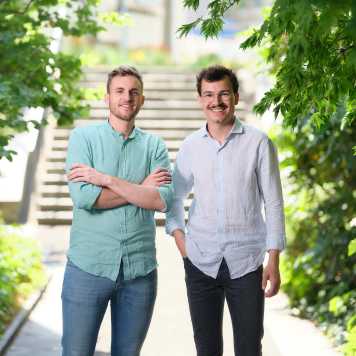
July 2022
Pioneer Fellowship of Severin Eder and Lukas Böcker featured in ETH News: Plant-based prawns to protect the marine environment. The two are currently developing a platform for producing seafood that is based on microalgae. external pageArticle in vegconomistcall_made.
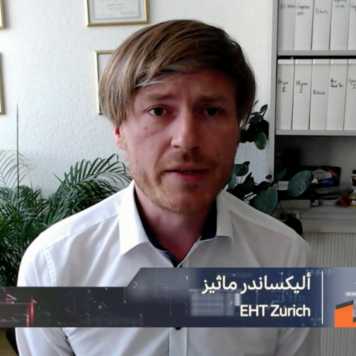
June 2022
external pageBBC Arabic reportcall_made on ETH and Singapore-ETH Centre microalgae research and development. Features interviews with Iris Haberkorn and Alexander Mathys.
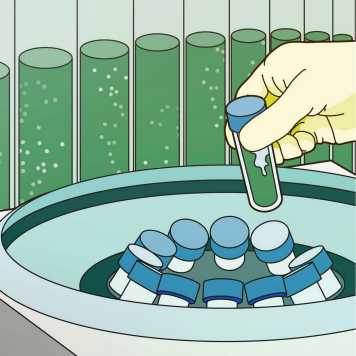
April 2022
Steak of the Future: An interactive feature in the Swiss Tages Anzeiger focused on alternatives to meat from across Switzerland. More Sustainable options included were insects, cultured meat and algae, with research from ETH Zurich highlighted. external pageRead article (DE)call_made
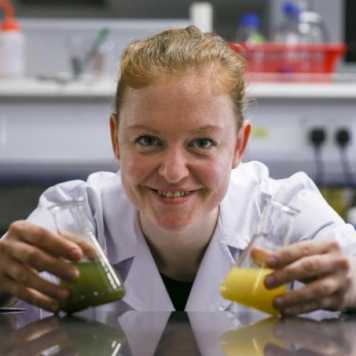
April 2022
The external pageSingapore Straights Timescall_made recently featured the project "Urban Microalgae-Based Protein Production."

March 2022
Katrin Giller talks about environmental and ethical concerns of meat consumption- and about her own work uses alternative proteins for feed. The presentation "external pageFleisch essen – ja, nein, vielleicht"call_made was an Treffpunkt Science City event at ETH Zurich.
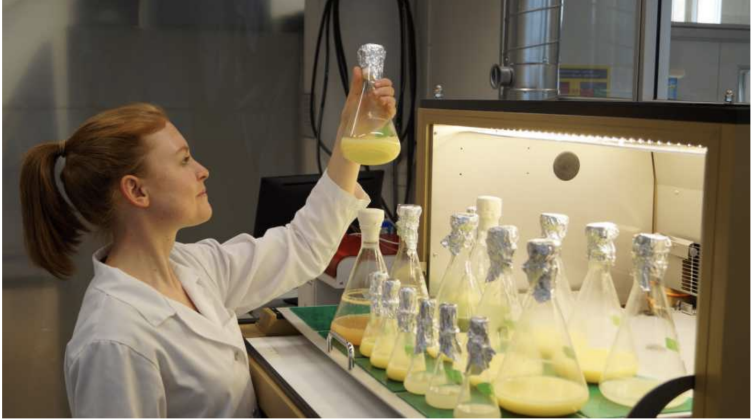
September 2021
Annoucement of new The ‘Urban Microalgae-Based Protein Production’ project, led by the Singapore-ETH Centre, together with the National University of Singapore (NUS) and Agency for Science Technology and Research’s (A*STAR’s) Singapore Institute of Food and Biotechnology Innovation (SIFBI). The project, which starts on 1 January 2022, will develop more sustainable methods to produce protein based on microalgae. Read press release

Leandro Buchmann from the SFP Group got the 1. Place 14th European Federation of Chemical Engineering (EFCE) - PhD Workshop on Food Engineering and Technology 2021 - congratulations!
Doctoral thesis: Emerging pulsed electric field process development for bio-based applications. ETH Zurich, 2020.
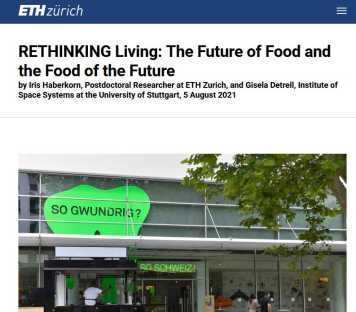
August 2021
ETH Blog Post about "RETHINKING Living: The Future of Food and the Food of the Future" from Iris Haberkorn, ETH Zurich and Gisela Detrell, University of Stuttgart.
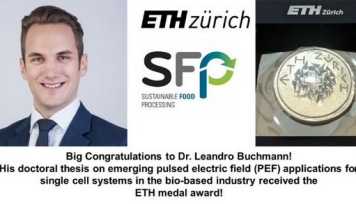
Gratulations to Dr. Leandro Buchmann from the Sustainable Food Processing Group for winning the ETH Medal Award for his Doctoral Thesis on emerging pulsed electric field (PEF) applications for single cell systems in the biobased industry!

Dr. Lukas Böcker from the Sustainable Food Processing Group presented at the Institute for Food, Nutrition and Health Seminar on 22 Septmber 2020. His talked was entitled "Microalgae proteins: From bulk to techno-functional proteins with benefits for nutrition and sustainability" and he answered questions from the participants. More about series: https://ifnh.ethz.ch/seminars.html
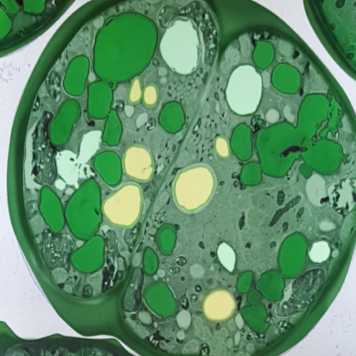
More protein and good for the planet: 9 reasons we should be eating microalgae. The ConversationUK highlights Sustainable Food Processing group research focusing on incorporating algae into food products to increase nutritional value. external pageLinkcall_made
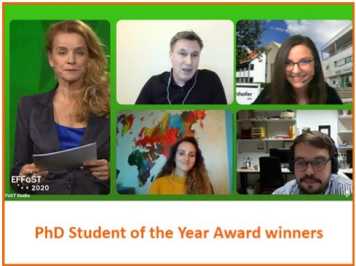
Doctoral candidate Greta Canelli from the SFP Group recieved at the 34th European Federation of Food Science and Technology (EFFoST) international conference in Israel the Student of the Year Award 2020 - congratulations!
Title of Abstract: Enzymatic degradation of Chlorella vulgaris cell wall to enhance protein and lipid bioaccessibility by Canelli G. et al.
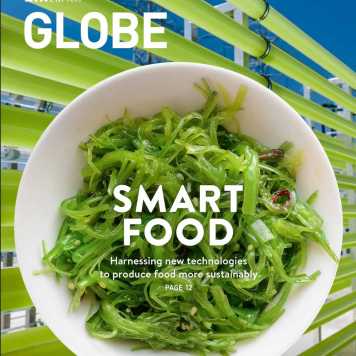
ETH GLOBE magazine article focuses on innovative research from Flagship Project on algae and insects protein sources for the future.
Turning hype into real alternatives by Corinne Johannssen

An episode of the SRF radio program Espresso in July focused on microalgae as a promising source of protein, highlighting work of the group of Sustainable Food Processing at ETH Zurich, led by Prof. Alexander Mathys. Listen to the whole segment “Meat was yesterday - now comes microalgae” on SRF (in German) external pageherecall_made
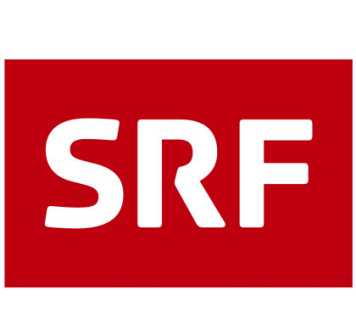
Bringing plant-based chicken to supermarkets in Switzerland: ETH Zurich start-up Planted in focus on SRF 10vor10 news program. Alexander Mathys comments on goal of producing completely new food products based on plant-based ingredients. external pageWatchcall_made
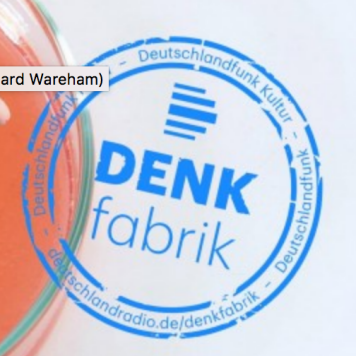
Save the climate with fermentation: Alexander Mathys talk to German radio DeutschlandFunk about sustainability of new foods.
Listen to the program or read the transcript external pageherecall_made
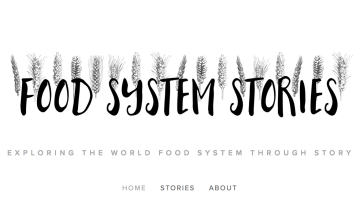
Leandro Buchmann shares his research in a Food System Story blog. Leandro aims to contribute to a better understanding of pulsed electric fields (PEF) process development and applications and thereby increase the technology readiness level. external pageRead the blogcall_made

The SRF business magazine Eco (18 September) featured the innovative work on algae as future protein sources being done by the group of Sustainable Food Processing at ETH Zurich, led by Prof. Alexander Mathys. Watch the whole segment “Algae and insects as feed” on SRF Eco (in German) external pageherecall_made

Current work of Flagship researchers Prof. Alexander Mathys and Dr. Christian Zubrugg focusing on novel proteins for nutrition such as algae and insects featured in Swiss newspaper Tages-Anzieger. Read more in WFSC News

